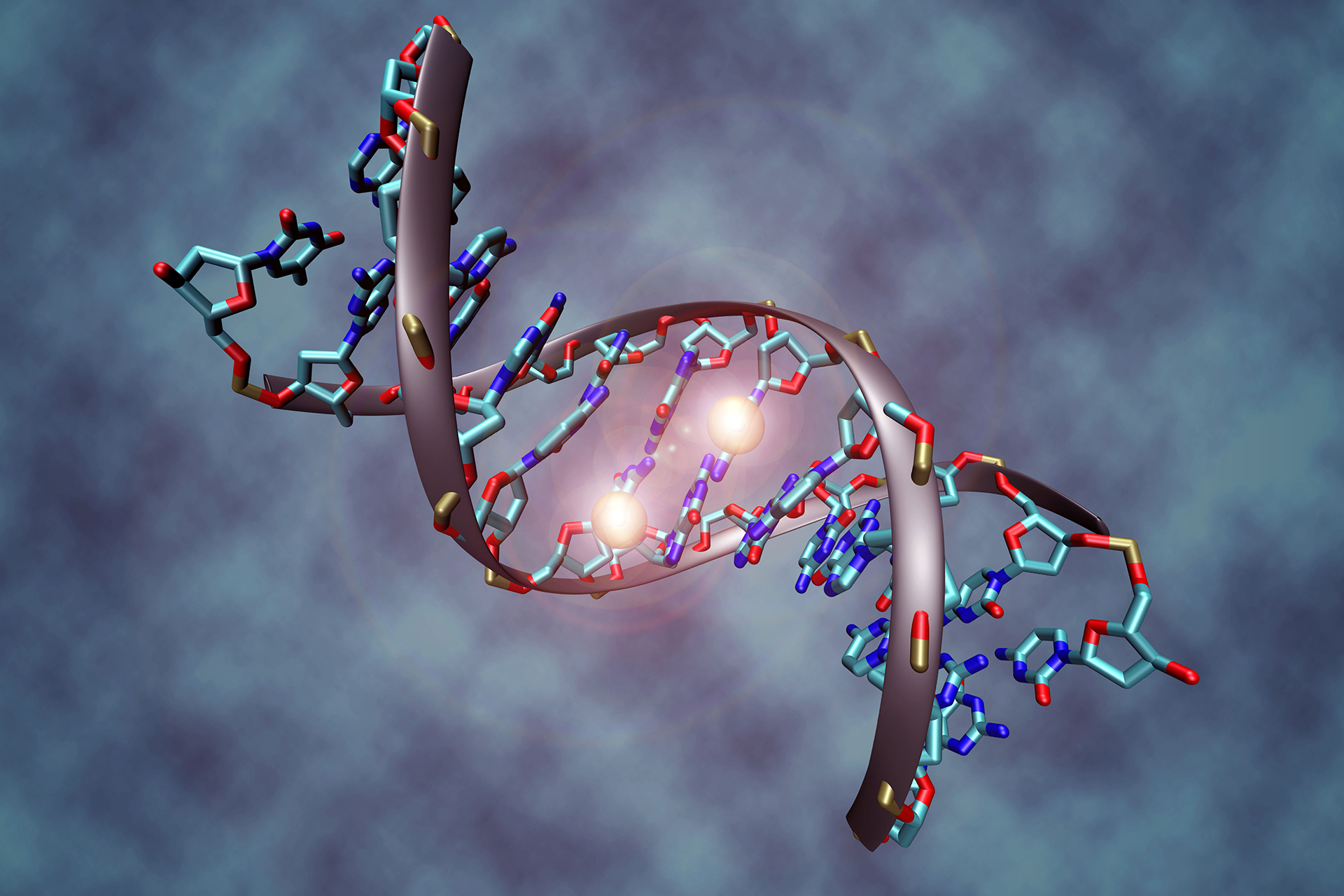Australian researchers have developed a cancer test, which could potentially detect cancerous DNA in blood and tissue samples in under 10 minutes.
The team found that certain epigenetic changes occurred only in DNA originating in cancer cells, and that these can be detected using gold nanoparticles.
'We never thought this would be possible, because cancer is so complicated,' said senior study author Professor Matt Trau at the University of Queensland in Australia. The study was published in Nature Communications.
Previous attempts to develop a universal test for cancer have been inhibited by the complex nature and genetics of the disease.
Epigenetics describes the changes of DNA expression, which can be modified without changing the actual DNA sequences. This may be done by molecules called methyl groups, which either hinder DNA expression, or promote it. While it was known that methylation is different in cancerous DNA, Professor Trau and his team have discovered that the unique methylation pattern in cancer DNA results in the cancerous DNA behaving differently when suspended in a solution.
'In healthy cells, these methyl groups are spread out across the genome, but the genomes of cancer cells are essentially barren except for intense clusters of methyl groups at very specific locations,' said co-author Dr Laura Carracosa, also at Queensland.
DNA from cancer cells shapes itself into complex 3D structures in solution, which bound to the gold nanoparticles the researchers added in the test. This binding of DNA does not happen with healthy DNA, and can be observed by the naked eye as the solution changes colour.
'We designed a simple test using gold nanoparticles that instantly change colour to determine if the 3D nanostructures of cancer DNA are present,' Professor Trau said.
The researchers tested the new technology in 200 human cancer samples with an accuracy of detection as high as 90 percent.
The test was able to detect different types of breast cancer, prostate, colorectal cancer and lymphoma in patient samples. The team is now planning to further develop the test with the University of Queensland commercialisation company UniQuest.
'We certainly don't know yet whether it's the holy grail for all cancer diagnostics, but it looks really interesting as an incredibly simple universal marker of cancer, and as an accessible and inexpensive technology that doesn't require complicated lab-based equipment like DNA sequencing,' Professor Trau said.
While media reports of the test have been enthusiastic, many researchers warned against too much enthusiasm. Dr Elin Gray, at Edith Cowan University in Joondalup in Australia, told ABC News: 'If it's very sensitive, we could use it for early diagnosis of cancer … especially for cancers where there is no screening paradigm, like ovarian and pancreatic.' But she cautioned: 'It is universal? We don't know until it's tested — it's impossible to know.'
Professor Paul Pharoah at the University of Cambridge said: 'They have an interesting technology that can be used to determine patterns of methylation of DNA. And they have evidence that those patterns differ in cancer tissue compared to normal tissue.'
'However, there are many issues with this study that limit its interpretation and it is clearly too preliminary to state that it could be a game changer,' he said. 'Well, anything could be a game changer, but most developments probably are not!'





Leave a Reply
You must be logged in to post a comment.